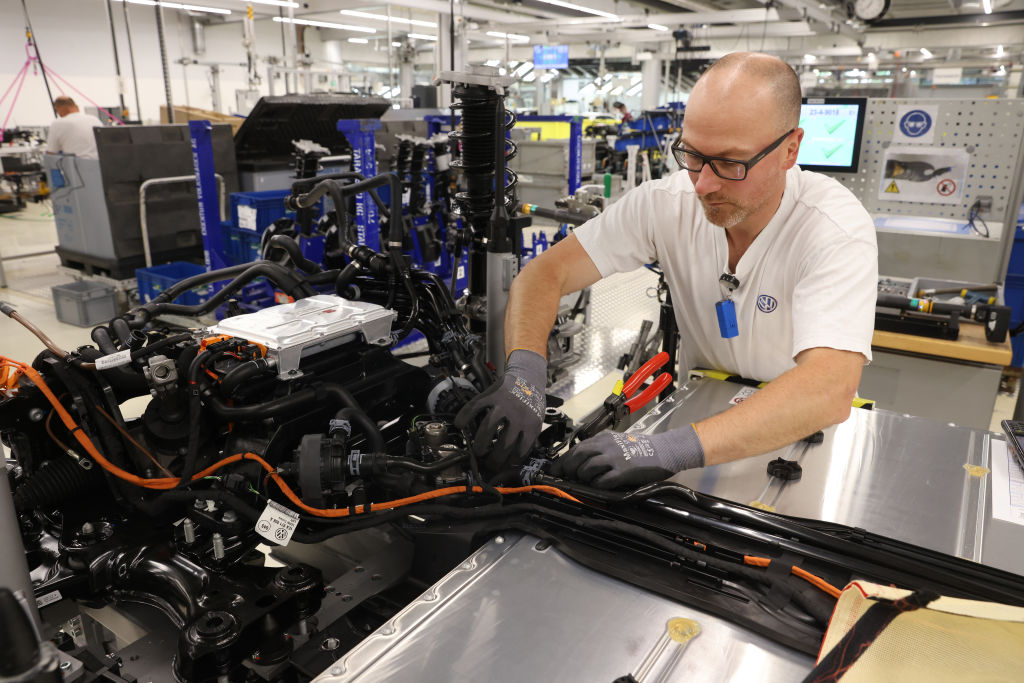Who remembers the EU’s Lisbon strategy of 2000? Probably not many, so let’s revisit its ambitious goals. By 2010 Europe was supposed to be “the most competitive and dynamic knowledge-based economy in the world capable of sustainable economic growth with more and better jobs and greater social cohesion”.
Just as a reminder, in the year 2000 the Finnish company Nokia was the world’s leading seller of cellphones. Facebook was not invented for another four years, Amazon was an obscure online bookseller, and Apple was still seven years away from launching its first smartphone. The Chinese company Alibaba was barely a year old, and Samsung was lagging behind European smartphone producers including Siemens and Ericsson.
Ten years later, the EU has not only lost ground in all these areas, European companies are barely detectable. The social media revolution, online retail, smartphones, or digital payment services – European companies and policy makers slept through all of these developments. There is one embarrassing exception: the fintech company Wirecard – hailed as Germany’s answer to Silicon Valley – which turned out to be a criminal enterprise with a business model that allegedly consisted primarily of bribery, fraud, and creative accounting. The person apparently responsible for much of this, Jan Marsalek, is still at large and assumed to be hiding in Moscow.
These failures have consequences, and as a recent paper by the European Council on Foreign Relations points out: “The US has dramatically outgrown the EU and the United Kingdom combined over the last 15 years. In 2008 the EU’s economy was somewhat larger than America’s: USD 16.2 trillion versus USD 14.7 trillion. By 2022, the US economy had grown to $25 trillion, whereas the EU and the UK together had only reached $19.8 trillion. America’s economy is now nearly one-third bigger. It is more than 50 per cent larger than the EU without the UK.”
Unfortunately, the paper then continues to lament the “vassalisation” of the EU by the United States, repeating the all-too-familiar trope that everything that goes wrong in Europe is somehow Washington’s fault.
This is complete nonsense: Europe’s decline is entirely home-grown, starting with the loss of competitiveness in its educational sector (among the world’s leading universities, only one EU institution made it into the top 30), or an energy policy that makes Europe an unattractive location for industry and their suppliers.
Among the top ten global investors in research and development only Volkswagen hails from an EU country; six are based in the US. The growing market in AI is dominated by ten US companies, and it is no coincidence that the software ChatGPT was developed by a 2015 start up in California’s Silicon Valley.
The EU complains about Washington’s Inflation Reduction Act which is successfully luring away European companies to set up shop in the United States. Within the last 12 months, inflation-adjusted construction spending in the manufacturing sector has more than doubled from $90 billion to $189 billion.
America’s pockets are by now much deeper than Europe’s, because the United States overall pursued a policy that made growth attainable while many EU countries did the exact opposite. The shale revolution of 2008 turned the US from an energy importer into an energy exporter. Yet most European nations decided to outright ban fracking technology, increasing dependency on Russia gas (that has now been replaced with dependency on US LNG), and closing down its biggest gas field in the Dutch region of Groningen.
Something similar is going on in the automobile industry, where Europe seems determined to legally destroy one of its most successful manufacturing sectors and replace domestically made internal combustion engines with EVs from China.
Europe is not a vassal of the United States or China, but of its own self-destructive economic policies. The EU likes to brag about the so-called Brussels effect, which argues that multinational companies adopt EU standards of regulation. No doubt, when it comes to regulation, the European Union is a world leader, but is it anywhere else?
The next great frontier will be Artificial Intelligence and there are already signs that Europe is falling behind technologically, yet this does not seem to stop policymakers from planning how to regulate it.
The EU now pins its hopes on the Green Deal industrial plan that promises to make Europe a leader in green technologies and accomplish everything else the Lisbon strategy and its successors have failed to do. If experience is any guide, however, this will just be another list of ambitious goals to be missed in the years to come.






Europe is no metrosexual superpower – it is an old continent seeking a quiet retirement